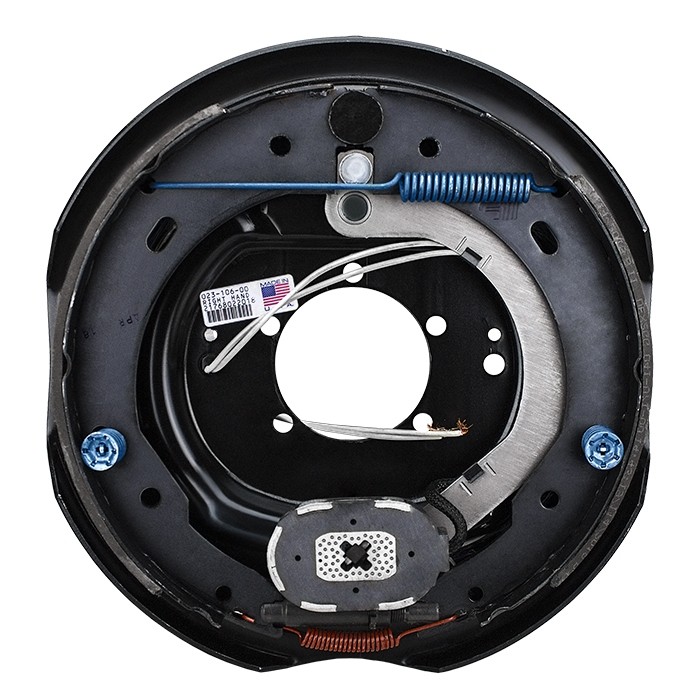The following guide answers the question: Which trailer brake option is right for you?
There are many different types of trailer brakes on the market today. Before deciding what type of brake is the right choice for your trailer, read this article. Not all trailers need brakes, but some trailers do require brakes by law, so it’s important to do your research before deciding which option is best suited for you.
Types of Electric Trailer Brakes
According to cars.com, electric trailer brakes are the most common type of trailer brake. They’re most commonly found on travel trailers and work trailers. Electric brakes are connected to your vehicle’s brake system. This means that they’ll stop at the same time you hit your vehicle’s brake pedal.
Electric drum brakes
Drum brakes are the “standard” trailer braking system in the flatbed and utility trailer industry. Electric drum brakes are controlled by an in-cab controller that comes standard on many of today’s trucks. Drug brakes are a good option for regular general-use towing, but if you plan to use your trailer for long hours every day, electric over hydraulic brakes may be a better option for you.
Electric over hydraulic brakes
Electric over hydraulic brakes provide stronger brake pressure than electric brakes and therefore are used on larger, heavier trailers. This type of brake typically has disk brakes but can use drum brakes as well. It’s important to note that not all brake controllers work with electric over hydraulic brakes. Before pursuing electric over hydraulic brakes, check to see that the controller is compatible.
Surge Brakes
Unlike electric brakes, surge brakes are separate from your vehicle’s brake system. They detect when your vehicle is slowing down and then begin to slow down the trailer. With surge brakes, you must slow down and brake steadily, because it can take a few seconds for the surge brakes to detect a slow speed and activate to work to slow down your trailer.
Hydraulic Brakes
Hydraulic brakes dissipate heat more evenly, so they tend to last longer than electric brakes. Heavy load haulers find that they’re more powerful and have the ability for a more controlled stop. According to Trailers Plus, hydraulic brakes use the force or momentum of a slowing tow vehicle to apply the brakes on a trailer. As the tow vehicle’s brakes are pressed, there is force applied to a hydraulic cylinder located on the hitch that activates the trailer brakes. The quicker you slow down your tow vehicle, the more pressure is applied to your trailer’s brakes.
A major downfall of hydraulic brakes is that you do not have independent control over the brakes. Pressure is only applied to the brakes when there is pressure applied to the hydraulic cylinder from the slowing of the tow vehicle. This causes issues when trying to back up a trailer.
Emergency Brakes
If your trailer has brakes, it will also always have an emergency brake. Trailer emergency brakes are used if the trailer becomes disconnected from the vehicle.
Contact the Trailer Experts
No matter what brakes you decide on, our team of trailer experts at BlueSwift Axles is ready to help! Whether you choose a type of electric brake, surge, or hydraulic brake, we’re here to answer all of your questions. Browse our inventory of trailer axle brake kits and let us know how we can make switching out your brakes a smooth ride!
